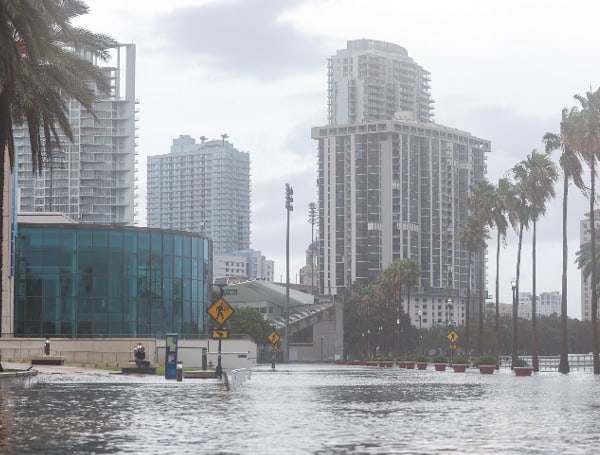ST. PETERSBURG, Fla. – As floodwaters recede and residents begin the process of returning to their homes, St. Petersburg Fire Rescue emphasizes the critical importance of practicing electrical safety during the re-entry and recovery phase.
Minimizing the risk of fire may save lives and property.
Floods can cause significant damage to electrical systems, posing serious risks to those who attempt to restore power without proper precautions.
In the news: Florida Husband And Wife Charged With Attempting To Meet 13-Year-Old For Sex
1. Stay Informed and Seek Professional Assistance: Before attempting to enter your property, contact your local utility company to ensure it is safe to do so. If you suspect electrical damage or are unsure about the safety of your electrical system, enlist the services of a licensed electrician to assess the situation. Safety should be the top priority during this process.
2. Do Not Touch Wet Electrical Equipment: Water and electricity are a deadly combination. If you come across electrical equipment that has been submerged or is wet, do not touch it. Standing water can carry an electric current, even if it appears calm. Contact a professional to assess the equipment and determine whether it needs to be repaired or replaced.
3. Turn Off Power Before Entering: If your home has been flooded, do not enter until the power has been turned off at the main circuit breaker or fuse box.
If you’re unable to safely access these areas, consult a professional to perform this task. Do not rely solely on the fact that the power is out in your neighborhood, as localized systems might still be active.
In the news: 2 Students Stabbed At Countryside High School In Clearwater
4. Inspect Wiring and Outlets: Once the power is safely disconnected, inspect your electrical wiring, outlets, and appliances for signs of damage. Look for discoloration, charring, or exposed wires. If you notice any of these issues, refrain from using the equipment and seek professional help.
5. Avoid Using Extension Cords: While cleaning up, avoid using extension cords as a permanent solution for powering devices. They are not designed for prolonged use and can pose fire and shock hazards. If additional power sources are needed, consult a licensed electrician to install them properly.
6. Wait for Approval Before Restoring Power: After your property has been deemed safe by a qualified professional, you can begin the process of restoring power. Follow their guidance closely and avoid attempting any repairs yourself unless you are trained to do so.
7. Educate Family Members: Ensure that everyone in your household is aware of the importance of electrical safety, especially children. Keep them away from any electrical equipment, outlets, or cords that may have been compromised by the flood.
In times of flood recovery, safety should be a paramount concern.
By adhering to these guidelines, residents can minimize the risks associated with electrical hazards and ensure the well-being of their families and property.
Android Users, Click To Download The Free Press App And Never Miss A Story. Follow Us On Facebook and Twitter. Signup for our free newsletter.
We can’t do this without your help; visit our GiveSendGo page and donate any dollar amount; every penny helps

